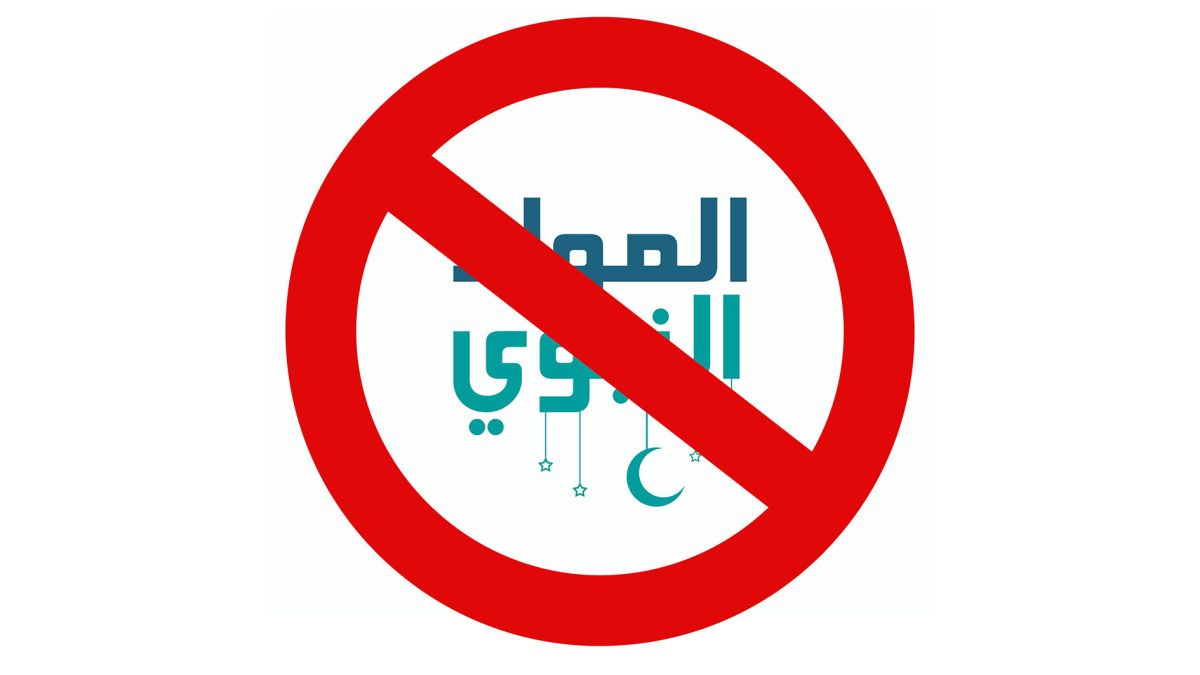Jamāʿah al-Tablīgh: Their Imitation of the Christians in Celebration of Mawlid al-Nabī and Their Innovative Forms of Dhikr
Al-ʿAllāmah Hammūd Al-Tuwayjirī


AlʿAllāmah Hammūd Al-Tuwayjirī (d. 1413 AH) said:
From amongst the falsifications concocted by Ḥusayn Aḥmad [tablīghī leader] against the ones he claims to be ‘wahhābī,’ as was mentioned by Muḥammad Aslam [al-Bakistānī] in his book ‘Jamāʿah al-Tablīgh’, is his [Ḥusayn Aḥmad]’s statement in his book ‘Al-Shihāb Al-Thāqib’:
‘The wahhābī people believe that just mentioning the birth of the Prophet (ﷺ) is a detestable, innovated matter. They further extrapolate this to claim that the formulae of remembrance [adhkār] [brought by] the awliyāʾ 1[close friends or allies of Allāh] is also a detestable matter.’
Shaykh Muḥammad Taqī al-Dīn al-Hilālī has refuted this claim. He says [in his book ‘Al-Sirāj al-Munīr’]:
‘He only means to mar the character of the Ahl al-Sunnah through their objection to the innovation of celebrating [the Prophet’s ﷺ] birthday. While [this celebration] is taken from the Christians in the middle of the fourth century after the hijrah. It was originally adopted by Abū al-Qāsim al-ʿAzfī from the people of Sabtah. He did not have to go far to find it. In fact, Sabtah [was a city] beside Andalus whose people were [mostly] Christian.
So, we say to him [Ḥusayn Aḥmad]:
Regarding this celebration of birthdays that you adopted from the Christians, who started it? Is it from the Sunnah or is it an innovation? Was it celebrated by the Messenger of Allāh (ﷺ) or the companions or the tābiʿīn or the Imams of jurisprudence or the Ahl al-Ḥadīth like al-Sufyānayn [Sufyān ibn ʿUyaynah and Sufyān al-Thawrī] or [Imām] ʿAbdullah ibn al-Mubārak or [Imām] Aḥmad or [Imām] al-Bukhārī or [Imām] Muslim? [Of course not], for they were far from such [celebrations]!
[Shaykh Ḥammūd said:]
‘As for the saying of Ḥusayn Aḥmad ‘They further extrapolate this to claim that the formulae of remembrance [adhkār] [brought by] the awliyāʾ [close friends or allies of Allāh] is also a detestable matter,’ Shaykh al-Hilālī said in refutation to this:
‘He means by these adhkār that which the leaders of Ṣūfiyyah give to their followers [from formulae which [they claim] are for the purpose of remembrance] which they term awrād. In doing so, they claim to establish a condition whereby a connection to their followers is made.’
[Shaykh Ḥammūd continued:] Then he [Shaykh Hilālī] said:
‘Then it needs to be said to Ḥusayn Aḥmad, the Indian state leader [of the Jamāʿah al-Tablīgh]: These adhkār that are attributed to your awliyā—who are actually the close friends and allies of the shayāṭīn—did the Prophet (ﷺ) bring them and teach them to this ummah such that they have inherited it from him? Or are they a form of revelation that has descended upon your awliyāʾconcerning which the Prophet (ﷺ was ignorant?
If you say they are from among the adhkār that the Prophet (ﷺ) brought to this ummah and taught, then seeking permission to say them is an innovation. As the people of knowledge would be well aware of their iterations and interpretations. The seeking of permission is not warranted here as the Prophet (ﷺ) has given [these adhkār] to his ummah and has already granted them permission regarding [saying] them.
From among the misguided traits of the Ṣūfiyyah is that they claim that any dhikr [formulae of remembrance] for which express permission from their shaykh has been granted will hold a greater reward. As for those [adhkār] for which there exists no permission from the shaykh, they hold a reward that is miniscule in comparison.
From this is the claim made by the Tijāniīn2 that Ṣalāh al-Fātiḥ which is performed with the permission of their shaykh or from another who has gained permission from him, is equal to completing the recitation of the Qurʾān six thousand times. However, if it was to be performed without permission, it would be equal to any other ṣalāh and would hold no additional merit!
Thus, if the muwaḥḥidūn were to object to these awrād [innovated formulae of remembrance] brought by the shuyūkh of Ṣūfiyyah, they would have only objected to an innovated matter. When did Abū Bakr ever grant anyone a similar dhikr?! When did ʿUmar take part in this?! The same applies to ʿUthmān, ʿAlī, and the rest of the ṣaḥābah! Furthermore, did there exist among the ṣaḥābah different ways such that we could say: [this is the] Bakrī way [i.e., the way of Abū Bakr], or ʿUmarī way [i.e., the way of ʿUmar], or ʿUthmanī way [i.e., the way of ʿUthmān], or the ʿAlawī way [i.e. the way of ʿAlī], or the Jābirīyyah way [i.e. the way of Jābir ibn ʿAbdullāh] or the Masʿūdīyyah way [the way of Ibn Masʿūd]?! It is not for us to speak in this way. Exalted are You, [O Allāh]; this is a great slander!
Ḥusayn Aḥmad only faults the muwaḥḥidīn [firm believers in the Oneness of Allāh] for their firm grasp upon the Sunnah of the Prophet (ﷺ) and for the enmity they have shown towards innovation. So, if he seeks to mar our characters because of the love we possess for the Prophet (ﷺ), then he has unwittingly praised us from where he sought our defamation.
Endnotes:
1. Awliyāʾ: According to the Ṣūfī ideology, the ones they claim to be awliyāʾ are equal to or better than the Prophet (ﷺ) as they claim to receive revelations from Allāh in the form of dreams and visions. They claim these to be directly from Allāh while the Prophet (ﷺ) received his revelation through Jibrīl. Therefore, according to them, their awliyāʾ are closer to Allāh than he was. They further use this as a justification for many innovated acts like making tabarrukfrom them, praying to their graves, seeking their intercession, and taking special dhikr they prescribe for them as part of the religion and better than the Sunnah of the Prophet (ﷺ).
2. Tijānī: Ṣūfī delineation attributable to Abū al-ʿAbbās Aḥmad ibn Muḥammmad al-Tijānī who was born in 1150 AH. He travelled in pursuit of knowledge and ended up at a man named Abū Ṣayfūn where he claimed that he met the Prophet (ﷺ) in the flesh whom he claimed to give him the path of Ṣūfiyyah and ordered him to leave all other paths. He also prescribed awrād for him which he began spreading. Upon increasing in infamy, he then claimed that he was related to ʿAlī ibn Abī Ṭālib (may Allāh be pleased with him) and that when he met the Prophet (ﷺ) he was told: “You are my real son” three times. See the Fatāwà of the High Council of Scholars 2:223-248.
Source: Al-Qawl al-Balīgh: 98-100
Translated by: Riyāḍ al-Kanadī
Most Popular: Last 30 Days

















